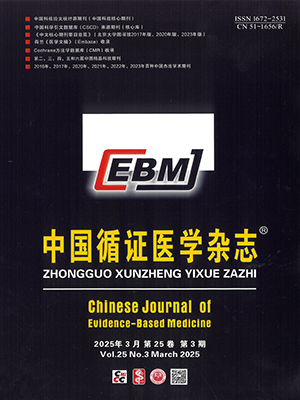Objective To evaluate the correlation of TNF-α G308A polymorphism and rheumatic heart disease (RHD) using meta-analysis.
Methods Databases including PubMed, EMbase, CNKI and WanFang Data were searched to collect case-control study on the correlation of TNF-α G308A polymorphism and RHD, published from January 1990 to June 2011. Two reviewers independently screened studies according to the inclusion and exclusion criteria, extracted data and evaluated the methodological quality of the included studies. Then meta-analysis was performed using RevMan 5.1 and SPSS 16.0.
Results A total of 5 studies were included, involving 539 RHD cases and 624 controls. The results of meta-analysis according to recessive genetic model of TNF-α G308A showed that there were significant differences in RHD risk between the AA genotype carriers and the GA+GG genotype carries (OR=5.06, 95%CI 2.15 to 11.89, P=0.0002), the same as the results of meta-analysis calculated according to dominant genetic model (OR=3.14, 95%CI 1.05 to 9.38, P=0.04).
Conclusion Current evidence shows that TNF-α G308A polymorphism is related to RHD, and the AA genotype carriers tend to face an increasing RHD risk. This conclusion still needs to be further proved by more high-quality and large-scale clinical trials.
Citation: ZHANG Yaojun,LI Minghui,YANG Shaohua,TIAN Nailiang,JIA Haibo,CHEN Shaoliang. Correlation of TNF-α G308A Polymorphism and Rheumatic Heart Disease: A Meta-Analysis. Chinese Journal of Evidence-Based Medicine, 2012, 12(10): 1209-1212. doi: 10.7507/1672-2531.20120188 Copy
Copyright © the editorial department of Chinese Journal of Evidence-Based Medicine of West China Medical Publisher. All rights reserved




